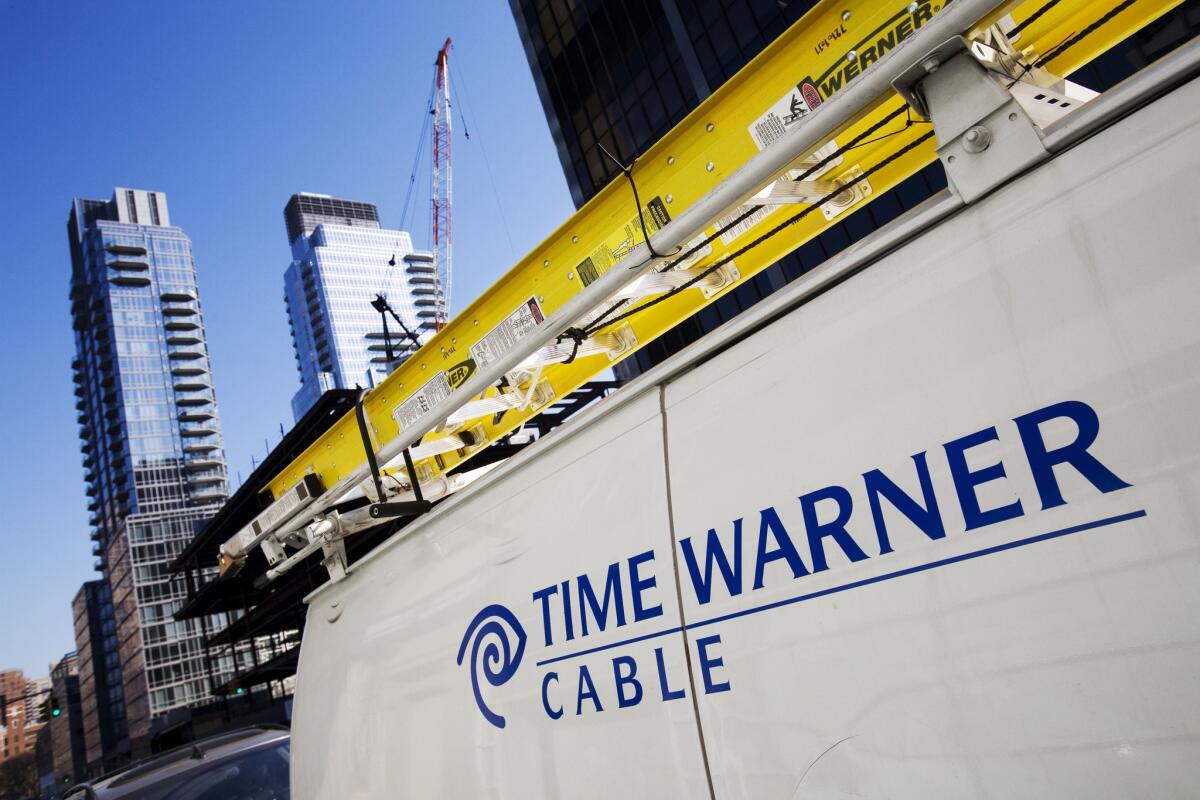John McCain: Cable TV, the right way

- Share via
America’s 100 million cable and satellite subscribers are forced to pay ever-higher bills for a growing number of channels they do not watch. The American people are being ripped off.
Meanwhile, services such as iTunes and Netflix have led a revolution in how consumers purchase and experience music and video entertainment. They have upended entire industries to allow consumers to buy digital content where they want, when they want. Amid all this change, two entrenched interests — the cable television and video programming industries — have teamed up to use federal regulations to stack the deck against consumers.
The numbers are striking. According to the Federal Communications Commission, the price for basic cable has grown by an average of 6.1% a year over the last 16 years — three times the rate of inflation and far outpacing the average American’s paycheck. Cable bills are projected to continue rising to an average of $200 a month by 2020.
The 82% of American households that subscribe to cable or satellite television are stuck paying escalating prices for “bundled” packages of more than 100 channels, despite the fact that the average viewer tunes in to only about 18 of them.
Reinforcing this fundamental unfairness is a federal regulatory and legal framework that tilts in favor of cable companies and television programmers at the expense of consumers.
This framework, which includes arcane but important benefits such as “compulsory copyright licenses,” “syndicated exclusivity,” “network non-duplication” and “retransmission consent,” was originally developed to help the fledgling industry grow. Today, these benefits, vigorously defended by armies of well-paid lobbyists, are helping sustain the status quo while failing to push the industry to meet modern consumers’ evolving demands.
Case in point: I am a certifiable sports nut and ESPN fanatic. I enjoy just about every sport, and I stay awake many nights in Washington watching games in Arizona that don’t end until well after midnight. Although I’d never go without ESPN, the fact is that millions of other viewers have no interest in sports programming. What many of these Americans are beginning to realize is that included in their cable bill is a charge of about $5 a month to carry ESPN.
That’s an “ESPN tax” of $60 a year that they’re forced to pay for having cable. And because it’s part of their bundle, the only way to avoid it is to cancel their cable subscription entirely. This status quo is fundamentally unfair and wrong.
Now, many will say that the government should stay on the sidelines and out of the free market. I’d normally agree. But the truth is the government already has its thumb on the scale in favor of industry and against the interests of consumers. It’s time for that to end.
I have introduced the Television Consumer Freedom Act, which aims to provide consumers with the option to buy only those channels they want to watch. The bill includes no mandates. Rather, it sends a powerful message to cable and satellite companies, such as Cox and DirecTV, and television programmers, such as Disney-ABC and NBC-Universal: If you want to continue to enjoy government-afforded regulatory benefits, offer TV-watching Americans an a la carte approach to programming rather than the take-it-or-leave-it ultimatum we have today.
Another provision in the bill seeks to end the practice of sports team owners punishing fans by blacking out home games that don’t sell out. It provides that games taking place in publicly financed stadiums can’t be blacked out.
The reaction to my proposal could be a case study of the trouble that common-sense ideas too often face in Washington. Consumer groups and everyday citizens roundly support it. If it were up to my Twitter followers, this bill would already be law. But entrenched interests, including the cable and television programming companies whose bottom lines may be affected by any effort to empower consumers, have made it clear they’re girding for a fight. They’re firing up their legions of lobbyists and preparing public relations campaigns to convince Congress of the remarkable “value” of the bundles they force on their subscribers.
This is an uphill battle, but I’m sure that the market will ultimately find a way to meet consumer demand. Many industries over the years — from the stagecoach builders and saddle makers to those who made the eight-track tape and the Sony Walkman — didn’t much like the change forced on them by the tide of history. Sooner or later, companies standing in the way today will face a similar choice: Meet consumers’ demands or become obsolete.
John McCain (R-Ariz.) is a member of the Senate Committee on Homeland Security and Governmental Affairs.
More to Read
A cure for the common opinion
Get thought-provoking perspectives with our weekly newsletter.
You may occasionally receive promotional content from the Los Angeles Times.









